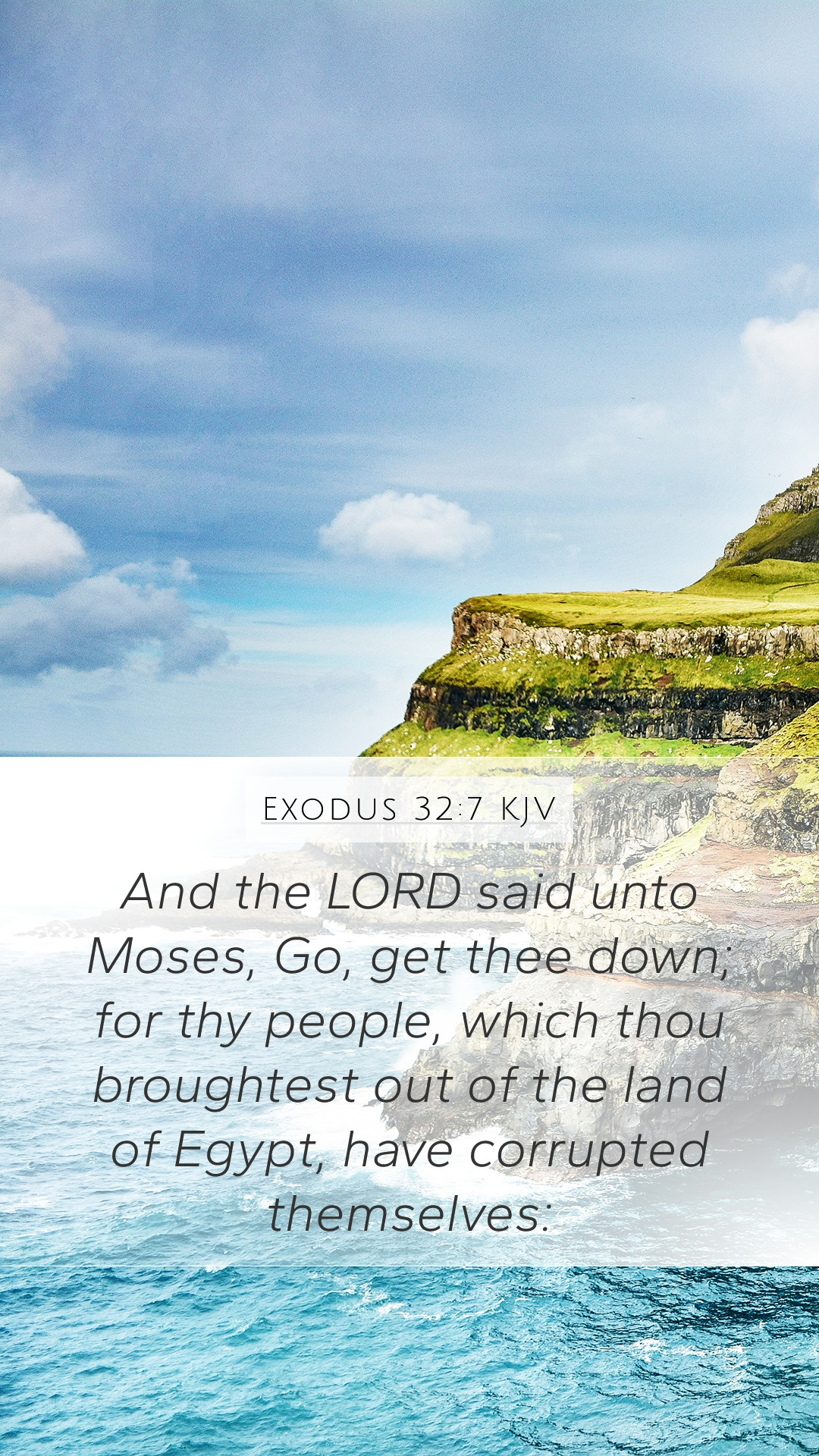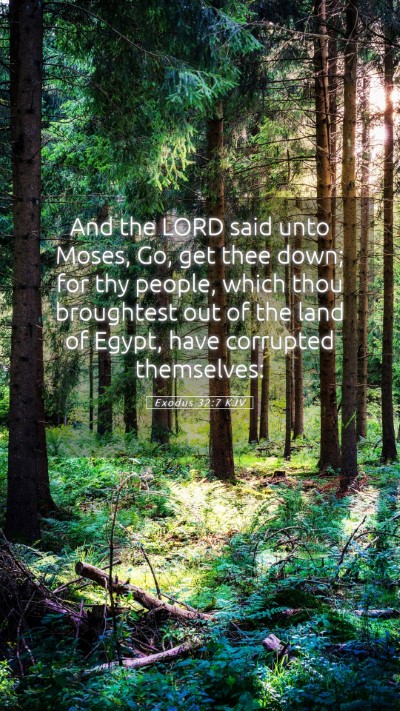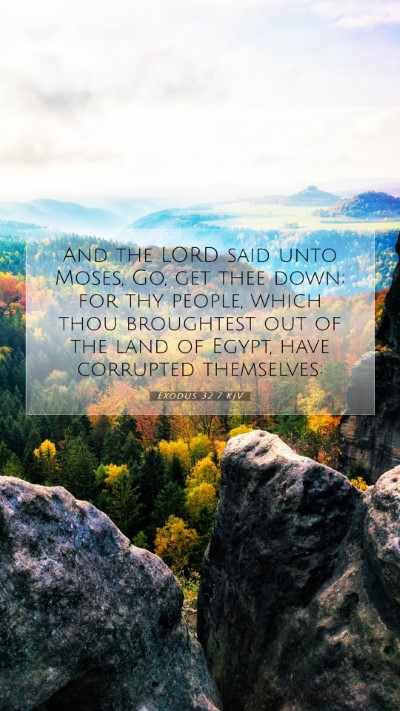Understanding Exodus 32:7
Bible Verse: Exodus 32:7 - "And the Lord said unto Moses, Go, get thee down; for thy people, which thou broughtest out of the land of Egypt, have corrupted themselves."
Bible Verse Meaning
This verse serves as a poignant moment in the narrative of the Israelites after their deliverance from Egypt. God informs Moses of their moral and spiritual decline, emphasizing a breach in the covenant relationship established between Him and His people.
Bible Verse Interpretations
Public domain commentaries provide various interpretations of this verse, highlighting God's righteousness and His expectations of the Israelites. Matthew Henry notes the gravity of the people's sin, regretting their quick return to idolatry. Albert Barnes elaborates on the implications of God referring to Israel as "thy people," indicating Moses' leadership role and the associated responsibilities. Adam Clarke emphasizes the emotional weight of God's words, showcasing the disappointment felt by God, who had done so much for them.
Bible Verse Understanding
- Accountability: This passage reflects the theme of accountability in spiritual leadership. Moses is called to act as a mediator, highlighting that leaders bear responsibility for the guidance and behavior of their followers.
- Human Nature: It reveals the fickleness of human nature and the propensity to stray from correct paths, especially after experiencing divine intervention.
- God's Justice: The urgency in God's command to Moses illustrates the seriousness of the Israelites' actions, showcasing God's justice and the expectation that His people remain faithful.
Bible Verse Explanations
Understanding this verse involves recognizing the tension between divine patience and human disobedience. The context within Exodus reveals that the Israelites, in the face of Moses' prolonged absence, turned to idolatry by creating a golden calf, thus breaking the first commandment. This action represented a significant break in faith and a rejection of God's authority.
Bible Commentary Insights
- Matthew Henry: He emphasizes that the people's corruption was a direct act of rebellion against God. Henry notes that despite witnessing God's miraculous deeds, they quickly turned to false worship.
- Albert Barnes: He highlights that God’s recognition of the people as “thy people” serves to remind Moses of the people’s responsibility towards God and emphasizes their failure to uphold His laws.
- Adam Clarke: Clarke reflects upon the emotional turmoil that God expresses through His words, indicating that despite their faithlessness, God's mercy would still be central to His character.
In-Depth Analysis of the Historical Context
Exodus 32:7 must be understood within the broader context of the Israelites' journey from slavery to nationhood. After their liberation, they encountered various adversities, during which they demonstrated both faith and doubt. The golden calf incident underscored a vital lesson in the covenant relationship between God and His people, calling into question the sincerity and depth of their faith.
Application of the Verse in Daily Life
This verse challenges modern readers to reflect on their faithfulness to God and the dangers of idolatry in contemporary life, which may manifest in various forms such as materialism, relationships, or pursuits that detract from one's commitment to God. It invites introspection regarding how quickly one can deviate from established ideals in the absence of visible guidance.
Cross References
- Exodus 20:1-5 - The first commandment regarding worship.
- Psalm 106:19-23 - A recounting of Israel's sin with the golden calf.
- Acts 7:39-41 - Stephen's speech highlighting Israel's rebellion.
- Deuteronomy 9:12-14 - Moses' reflection on Israel's sin.


